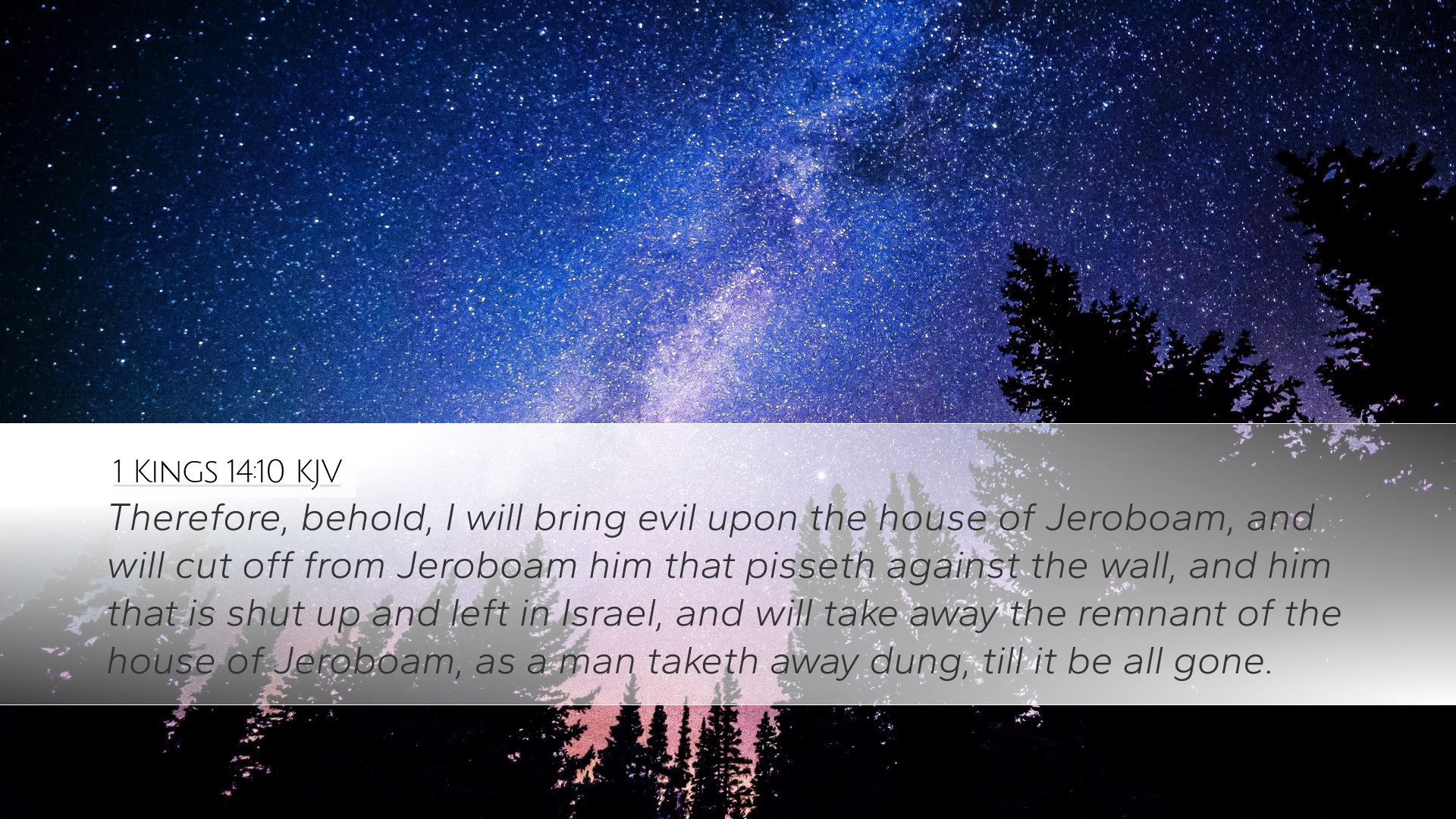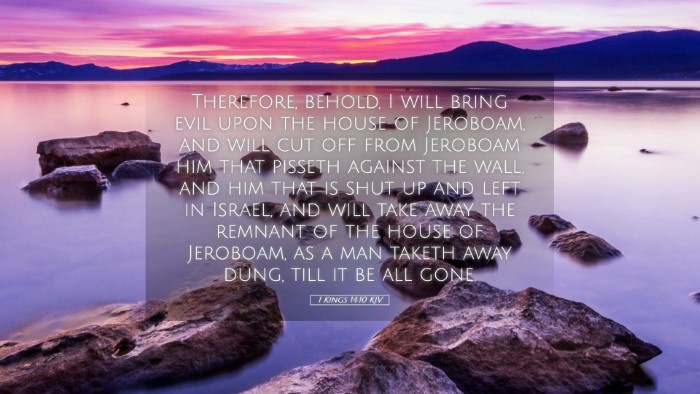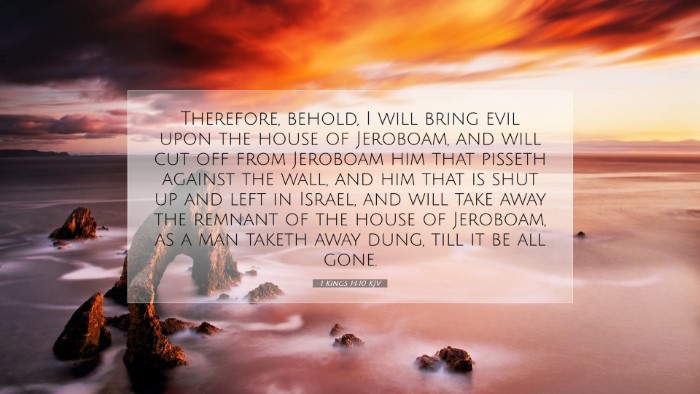Old Testament
Genesis Exodus Leviticus Numbers Deuteronomy Joshua Judges Ruth 1 Samuel 2 Samuel 1 Kings 2 Kings 1 Chronicles 2 Chronicles Ezra Nehemiah Esther Job Psalms Proverbs Ecclesiastes Song of Solomon Isaiah Jeremiah Lamentations Ezekiel Daniel Hosea Joel Amos Obadiah Jonah Micah Nahum Habakkuk Zephaniah Haggai Zechariah MalachiVerse
1 Kings 14:1 1 Kings 14:2 1 Kings 14:3 1 Kings 14:4 1 Kings 14:5 1 Kings 14:6 1 Kings 14:7 1 Kings 14:8 1 Kings 14:9 1 Kings 14:10 1 Kings 14:11 1 Kings 14:12 1 Kings 14:13 1 Kings 14:14 1 Kings 14:15 1 Kings 14:16 1 Kings 14:17 1 Kings 14:18 1 Kings 14:19 1 Kings 14:20 1 Kings 14:21 1 Kings 14:22 1 Kings 14:23 1 Kings 14:24 1 Kings 14:25 1 Kings 14:26 1 Kings 14:27 1 Kings 14:28 1 Kings 14:29 1 Kings 14:30 1 Kings 14:31

